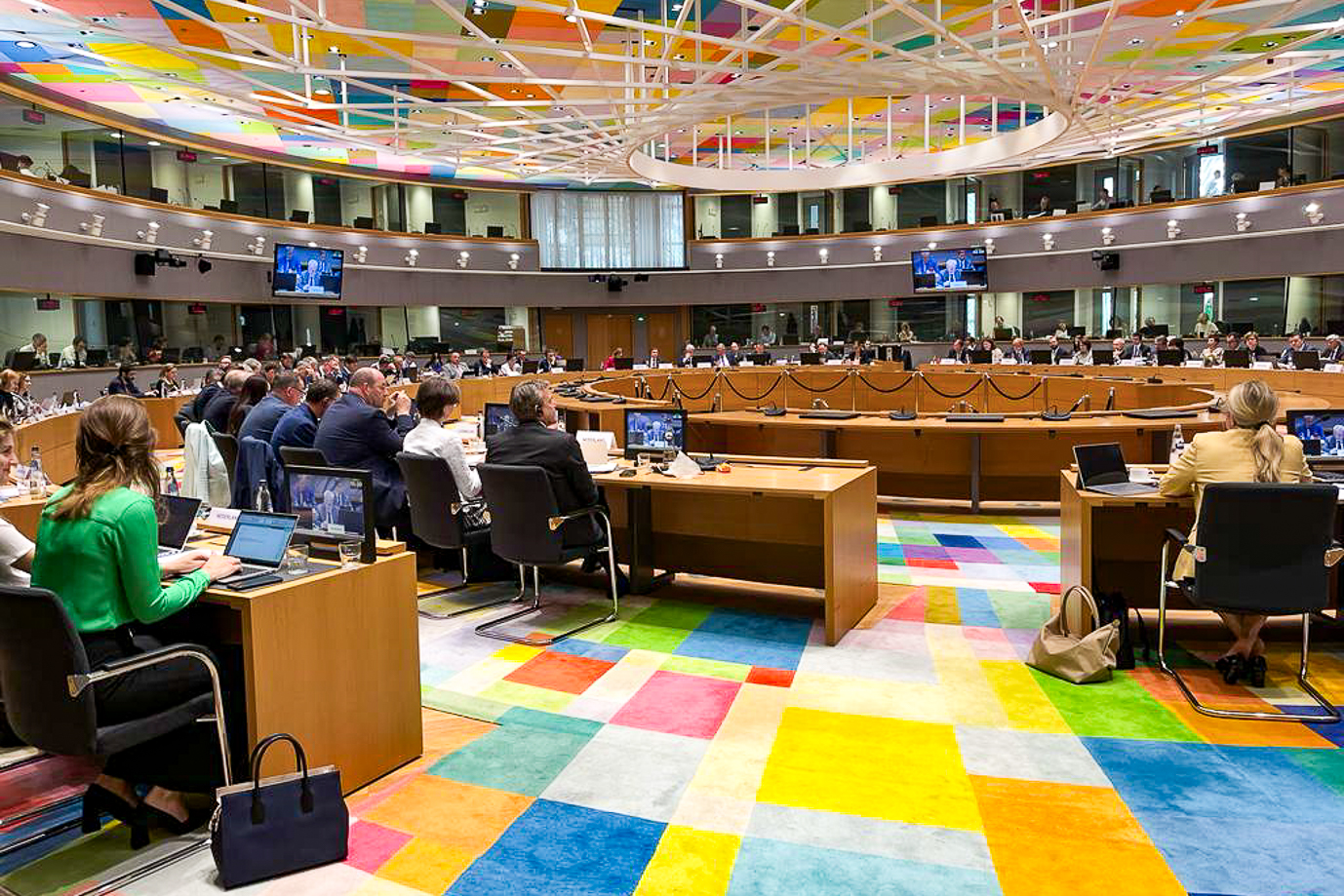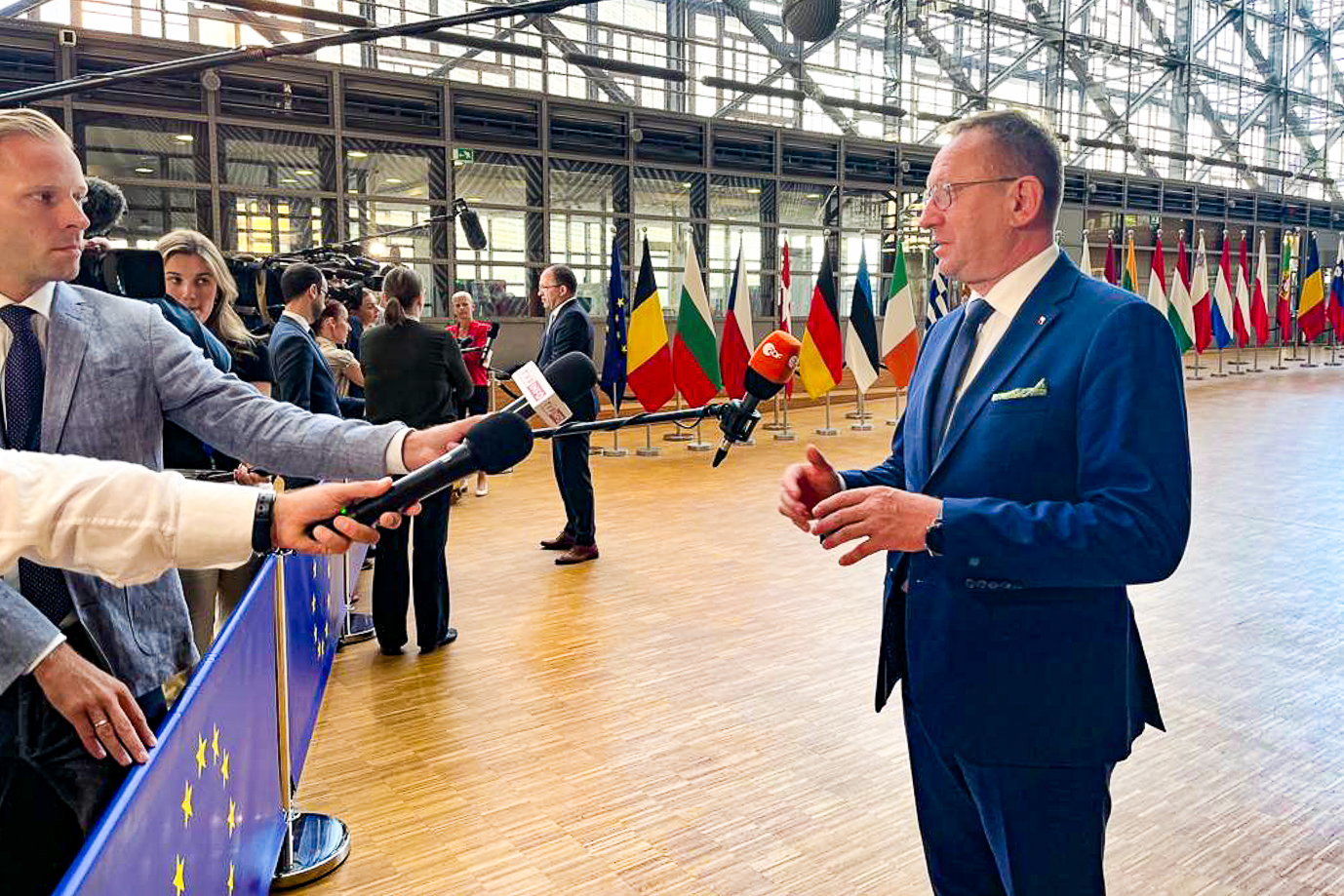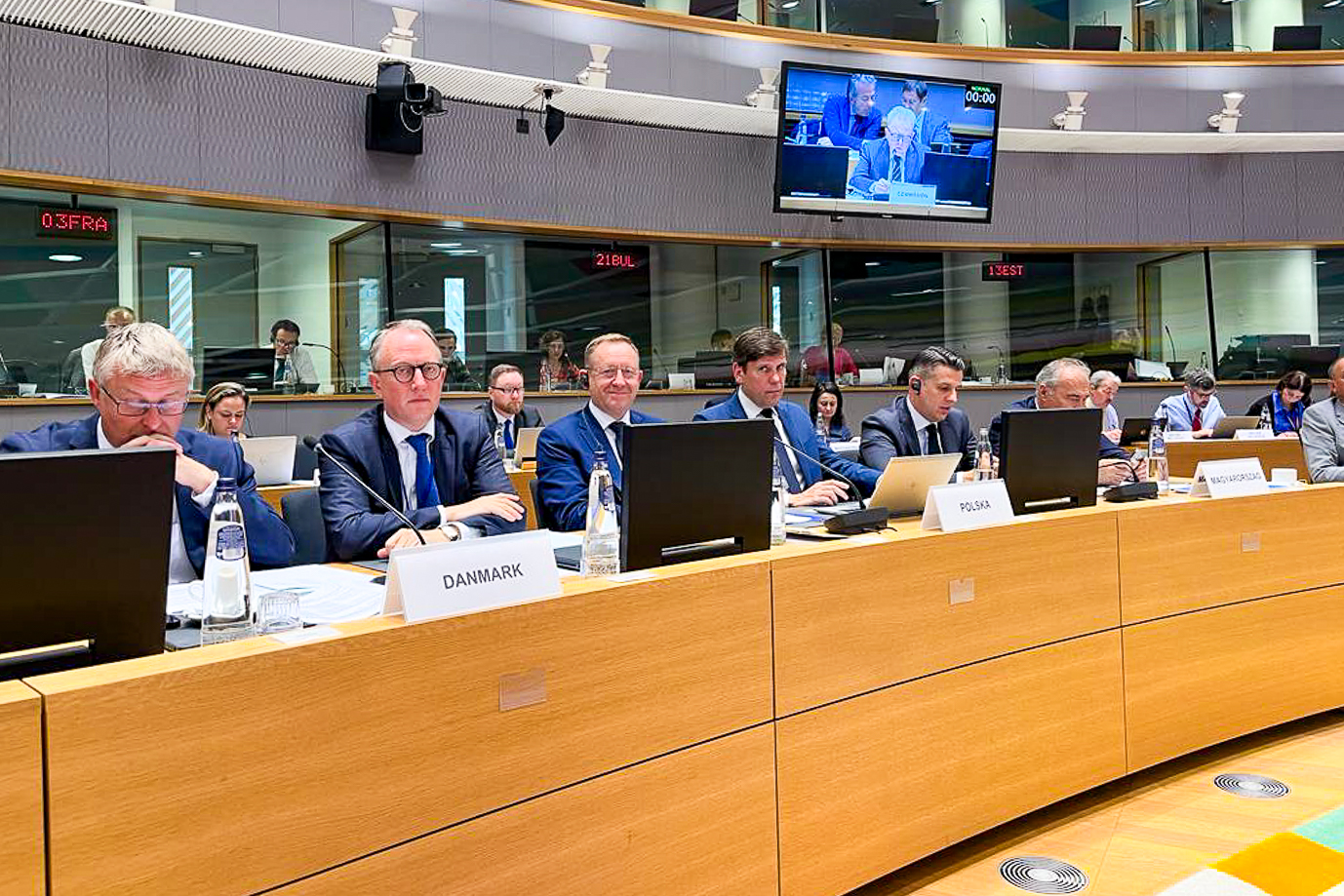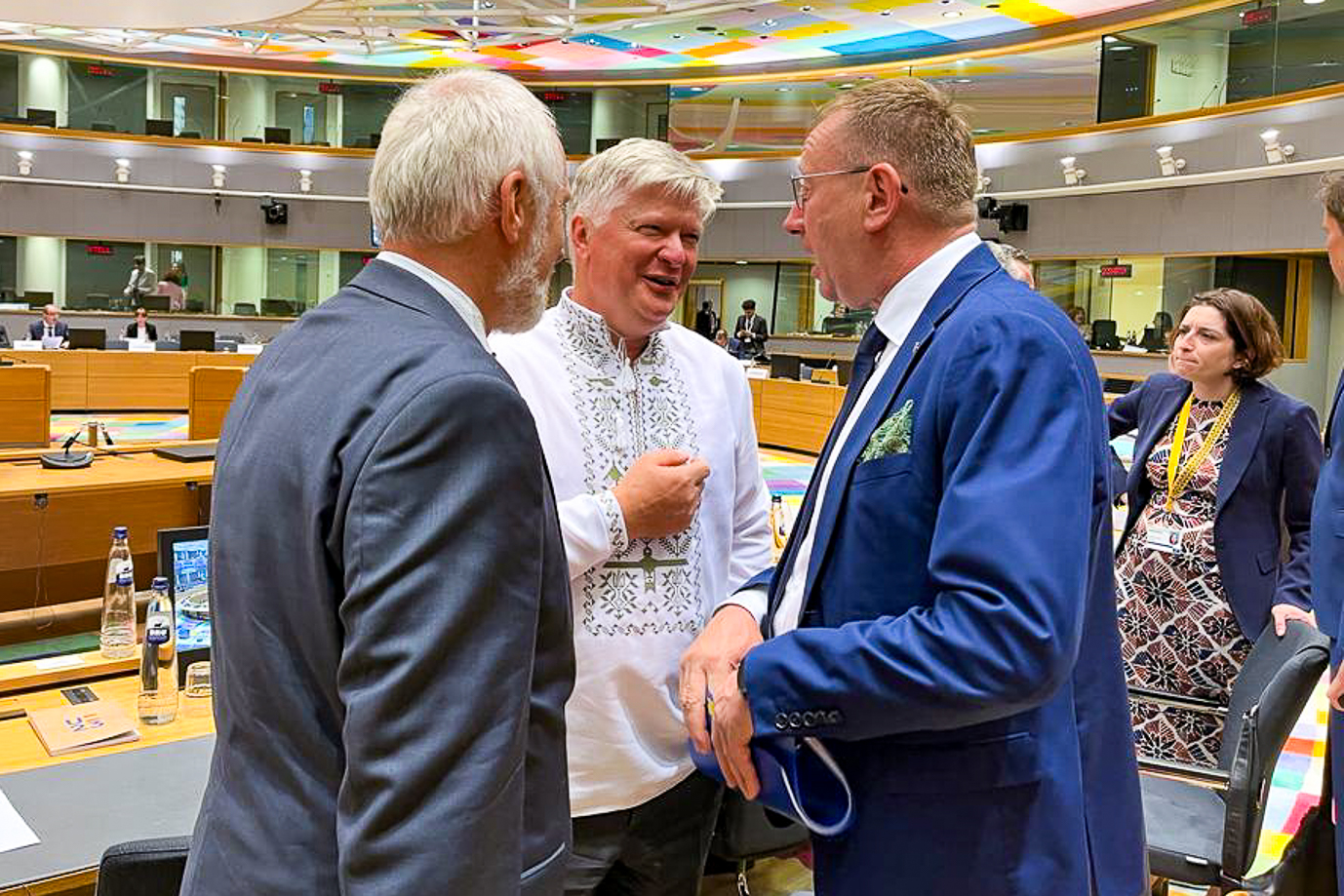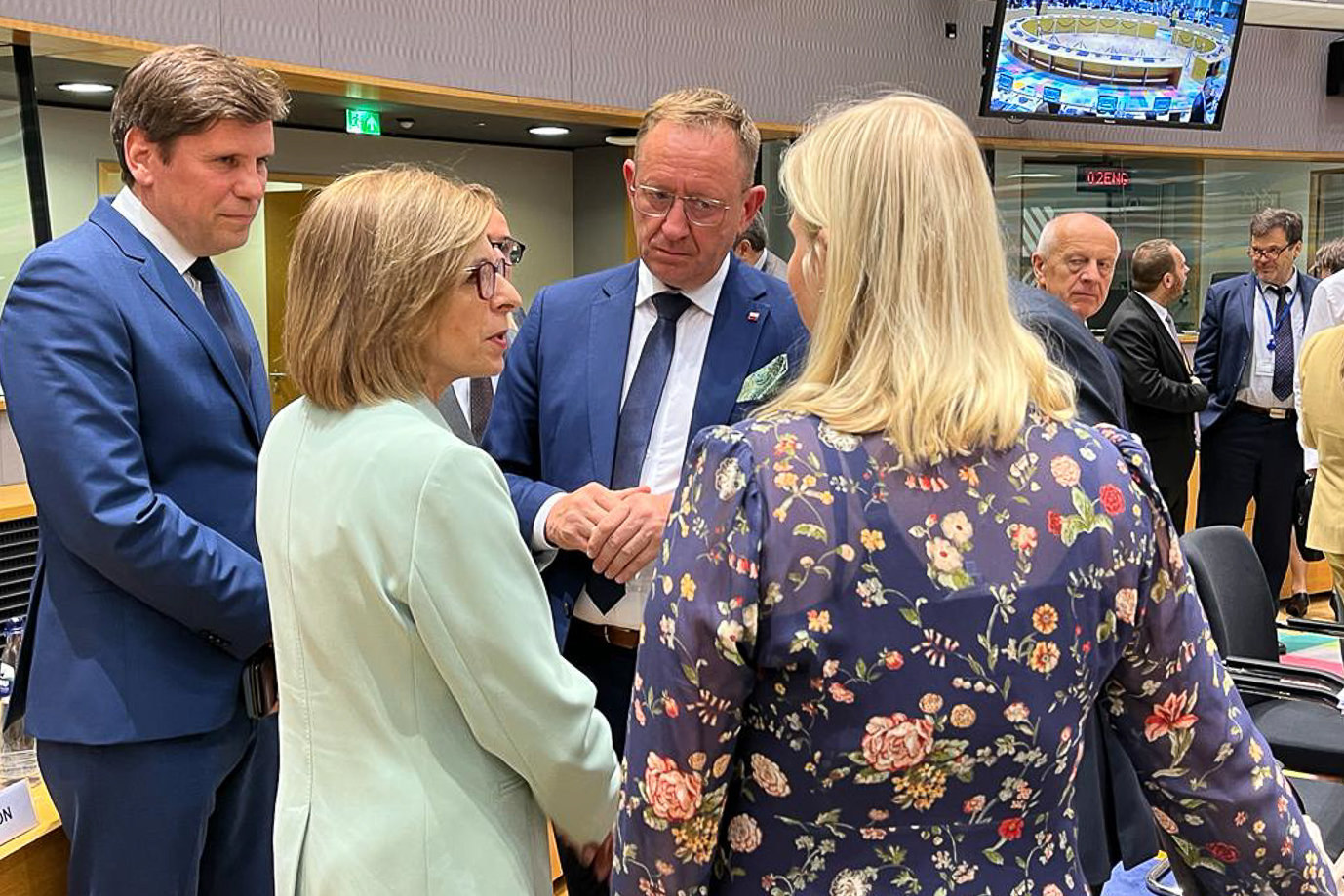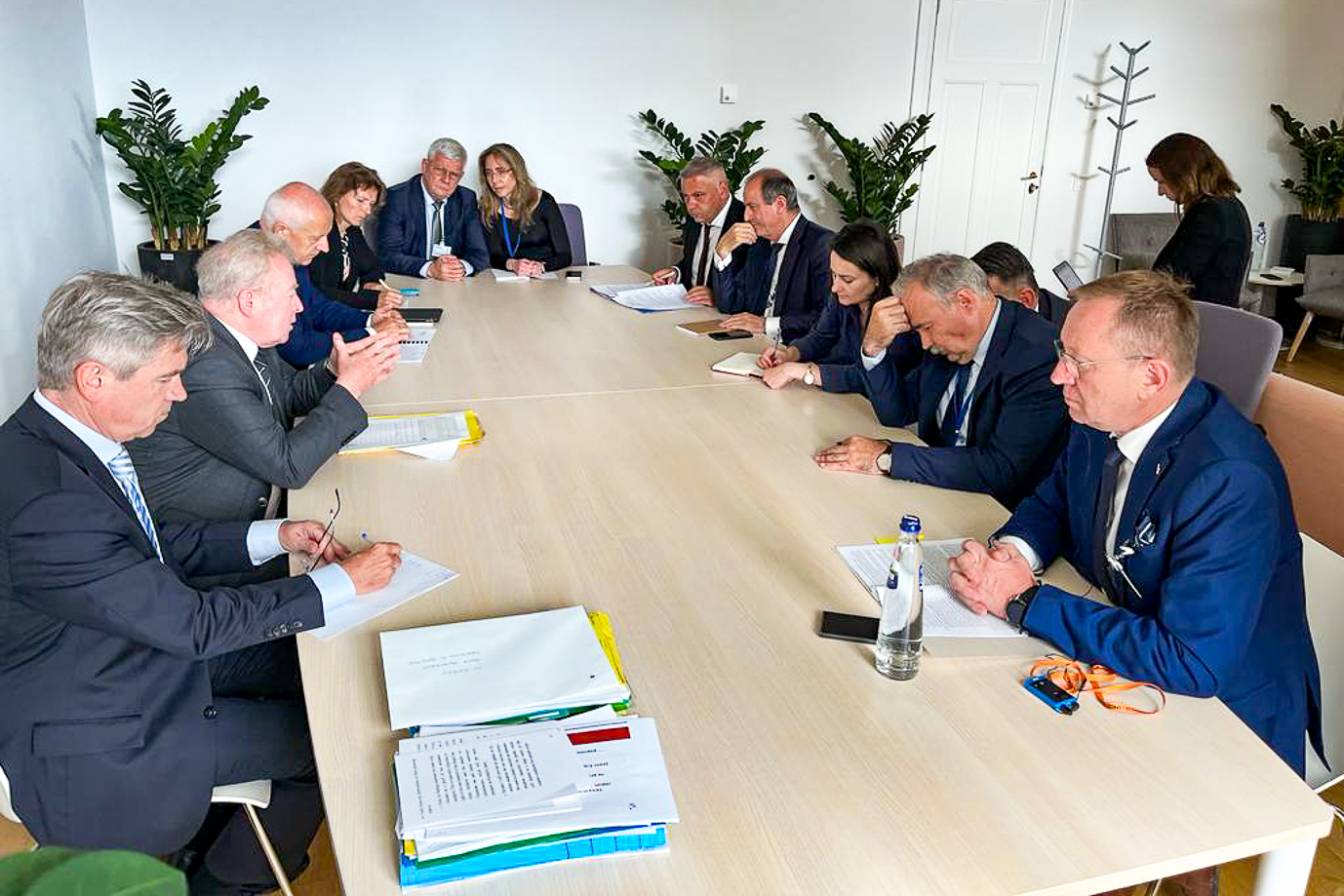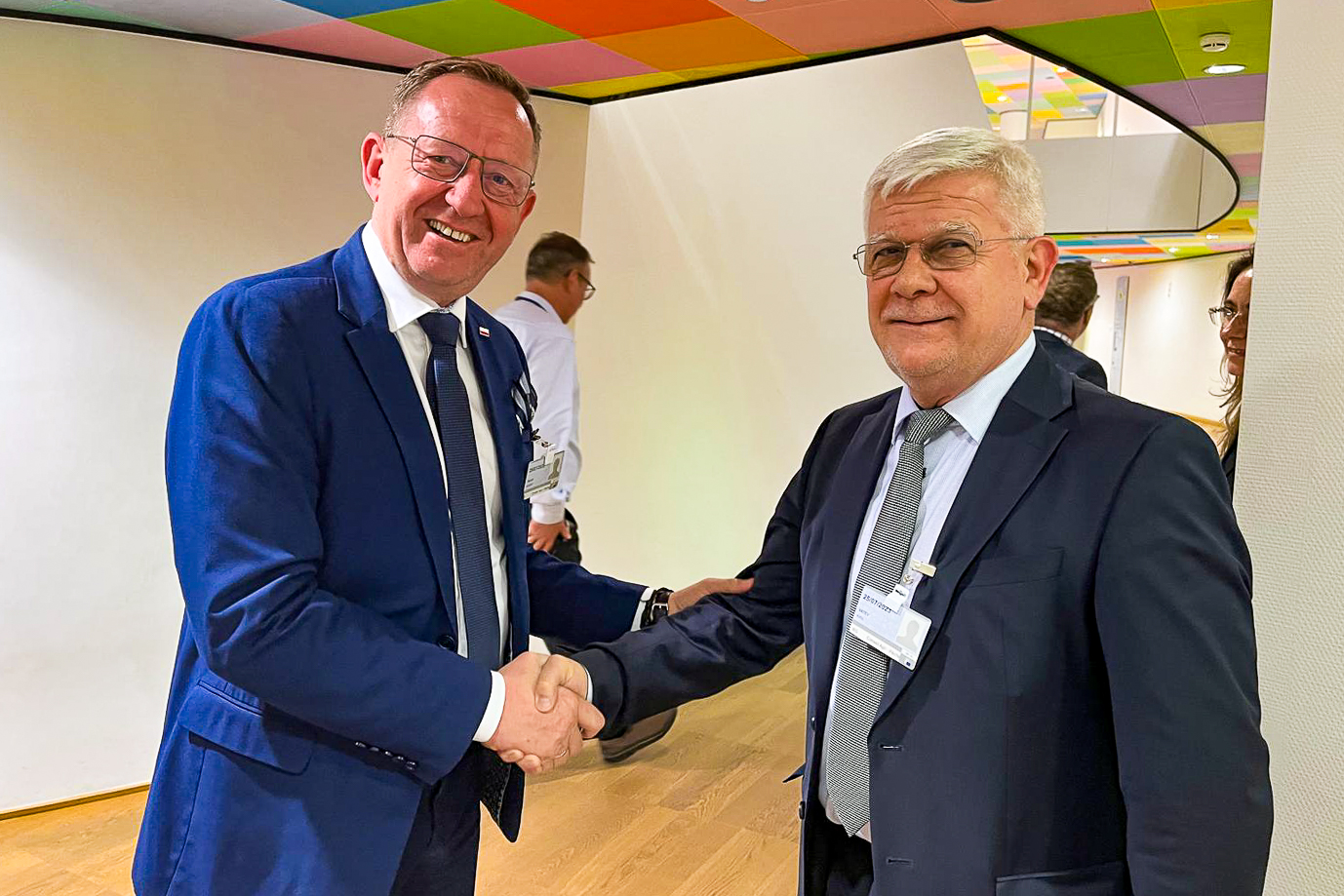The AGRIFISH Council in Brussels – issues of importance for agriculture
26.07.2023
The meeting of the EU Agriculture and Fisheries Council (AGRIFISH) in Brussels addressed important, current issues related to agriculture. It was the first meeting of the Agriculture and Fisheries Ministers under the Spanish Presidency. The Polish delegation was headed by Mr. Robert Telus, Minister of Agriculture and Rural Development.

Most important topics
The most important topics of the meeting included: the situation on the agricultural markets, the proposal for a Regulation on the sustainable use of plant protection products and the proposal for a Regulation on plants obtained by certain new genomic techniques and their food and feed.
Priorities of the Spanish Presidency
In the scope of issues related to agriculture, the priorities of the Spanish Presidency will Include, among others: safeguarding food security, supporting and promoting technologies in the EU agri-food sector, including new genomic techniques, stressing the importance of the agri-food sector and the CAP, among others, quality policy, and raising the awareness of the opportunities offered by rural areas.
In the scope of issues related to fisheries, the Spanish Presidency intends to promote decarbonisation of the fisheries sector, to strengthen the role of the Common Fisheries Policy and to take action to improve the decision-making structure in the area of the Total Allowable Catches (TACs) and quota.
The position of Poland
Mr. Robert Telus, Minister of Agriculture and Rural Development, informed that food security was a very important issue for Poland as one of the crucial problems related to Russia’s aggression against Ukraine with which the EU had to cope. The Minister stressed that at present the priority should be to improve the operation of the solidarity lanes and the transit of agricultural products from Ukraine, primarily to third countries. He noted that infrastructural investments and legislative mechanisms were needed to enable this undertaking.
The situation on the agricultural markets
The Ministers discussed the situation on the agricultural markets in the context of the Russian invasion of Ukraine in order to take stock of the different changes affecting the situation on the market of agri-food products and the EU agri-food sector.
The position of the European Commission
The European Commission presented the current situation on the agricultural markets, stressing the need to seek solutions in the area of the trade with Ukraine, particularly in the context of Russia’s failure to extend the Black Sea Grain Initiative.
The EC also pointed out that the value of the imports from Ukraine to the EU had grown from EUR 7 billion in 2021 to EUR 13 billion in 2022 and that most of them had gone to the 5 Member States bordering on Ukraine. The EC declared that it would monitor the situation in the context of the ban on imports, since a decision on this matter should take into account the situation in September, in light of a more complete picture then.
The position of Poland
On behalf of the 5 frontline states (Poland, Bulgaria, Romania, Slovakia and Hungary), Mr. Robert Telus, Minister of Agriculture and Rural Development, presented their common position adopted during the meeting on 19 July 2023 in Warsaw. This position includes the proposal that the so-called preventive measures introduced by the European Commission on the imports of Ukrainian wheat, maize, rapeseed and sunflower seeds should be extended at least until the end of the year.
“Moreover, we believe that the catalogue of products subject to the preventive measures should remain open so as to enable an effective response to similar problems in sectors other than those of cereals and oil seeds,” the Minister added.
Minister Robert Telus stressed that our actions taken in defence of farmers in the frontline states were not against anyone.
“They are a call for reflection and for necessary decisions of the EC. Even if the war ended today, the Ukrainian products would remain with us. We need to build instruments for the future which will be useful for both Ukraine and the Member States,” the Minister explained.
The head of the Ministry of Agriculture also addressed the difficult situation on the cereal, soft fruit and milk markets in Poland. He added that the prices continued to fall on the cereal market and that, in addition, the situation had become more complicated due to the uncertainty about the further operation of the cereal corridor on the Black Sea.
Minister Robert Telus pointed out the fact that the imposition of restrictions on the imports of agricultural products from Ukraine resulted in the increased transit of Ukrainian wheat and maize through Poland.
“Whereas in March 2023 the total transit of these products amounted to almost 122,000 tonnes per month, in June it grew to almost 262,000 tonnes,” the head of the Polish delegation informed.
Sustainable use of plant protection products
The Ministers exchanged their views on the EC analysis which complemented the impact assessment of the proposal for a Regulation on the sustainable use of plant protection products. During their discussion, most Member States negatively assessed the presented results of the study.
The position of Poland
Mr. Robert Telus, Minister of Agriculture and Rural Development, informed that Poland discerned the need to reduce the risk posed by the use of plant protection products. However, decisions in this scope should be taken in a responsible way, on the basis of reliable data and analyses. The Minister stressed that safeguarding the food security of the citizens of the European Union should be our priority.
The head of the Polish Ministry of Agriculture stated that we had to bear in mind the economic impacts of the changes to be introduced on farmers. The war in Ukraine caused a significant deterioration of the conditions of agricultural production, undermining its profitability.
“Any restrictions and new obligations imposed on agriculture should be introduced very cautiously,” the Minister noted.
Minister Robert Telus stressed that the presented complemented impact assessment of the proposed Regulation did not fully meet Poland’s expectations.
“There are no unambiguous, quantitative answers to a number of issues set out in the Council Decision. The presented document needs to be subjected to a further detailed assessment as part of the work of the working party of the Council. This assessment should be a starting point for further work on the proposed Regulation.” Minister Robert Telus added.
Minister Robert Telus said that the mandatory reduction targets for plant protection products based on statistical calculations must not be imposed on the Member States.
“The Member States should be able to make their contribution to the achievement of the EU targets with consideration given to: the specific local circumstances, the crop structure, the consumption level of plant protection products, the pressure from diseases and pests and the availability of alternative solutions. However, this must not have the form of arbitrarily set binding targets,” the Minister explained.
The head of the Polish Ministry of Agriculture stressed that in accordance with the Farm to Fork Strategy the reduction targets might be imposed at the level of the European Union as a whole rather than at the levels of particular Member States. He added that their implementation had to be preceded by the provision of farmers with adequately effective alternative solutions.
The Minister also stated that the decision to designate sensitive areas and to impose restrictions on agricultural production in them should be left to the Member States.
New genomic techniques
The European Commission also presented a new proposal for a Regulation on plants obtained by certain new genomic techniques and their food and feed. The Member States expressed their readiness to engage in further work to make progress in this area. Some of them welcomed the proposal, while others stressed their negative attitude to GMOs and the need to cautiously and clearly separate the new genomic techniques from GMOs.
The Polish delegation pointed out that the overarching objective was to ensure the safety of products obtained by new genomic techniques for consumers and the environment. Poland stressed that it would very closely follow the work on the proposal for a Regulation and analyse all its provisions in detail. It informed that it was important for the new regulations to be clear and transparent for all the parties concerned. They also need to provide a strong basis for the work of the authorities competent to carry out official controls.
The Polish delegation informed that the proposal for new regulations now needed to be analysed at the national level. It pointed out, however, that when assessing this proposal, we will pay special attention to the assessment of the impact of patents applicable to the plants obtained by new genomic techniques on the breeding work, especially in small and medium-sized seed companies.
Meetings on the sidelines of the Council meeting
Mr. Robert Telus, Minister of Agriculture and Rural Development, and the Ministers of Bulgaria, Romania, Slovakia and Hungary met with Mr. Janusz Wojciechowski, EU Commissioner for Agriculture. They talked about the situation on the agricultural markets and the issue of the extension of the preventive measures on the imports of selected agricultural products from Ukraine after 15 September 2023.
Mr. Robert Telus, the head of the Ministry of Agriculture, participated in the meeting related to the Czech Republic taking over the Presidency of the Visegrad Group - GV4. During the meeting, Minister Robert Telus stated that we were on track to extend the ban on cereal imports after 15 September. He also said that this would not solve the problem and that time was needed to introduce appropriate instruments.
Bilateral meetings
Mr. Robert Telus, Minister of Agriculture and Rural Development, talked individually with Mr. Janusz Wojciechowski, EU Commissioner for Agriculture, on amendments to the CAP Strategic Plan.
The head of the Polish delegation also talked with Mr. Kiril Vatev, Minister of Agriculture and Food of Bulgaria, on the transit of products from Ukraine.

